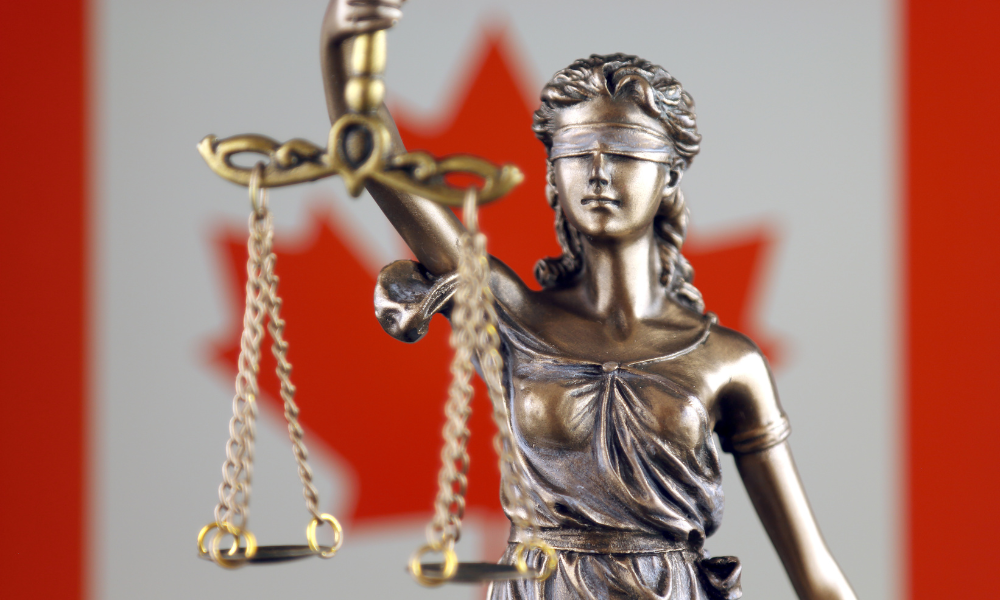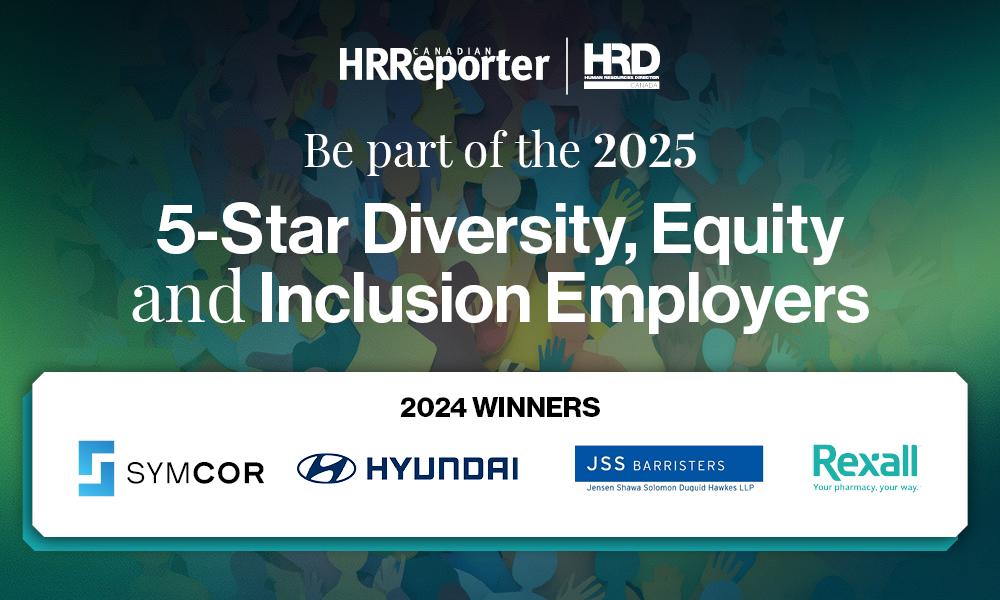Trump’s complaints about anonymous tip highlight challenges

The perils of whistleblowing were in the spotlight recently when U.S. President Donald Trump lambasted the anonymous accuser who suggested the leader acted inappropriately when it came to the country’s dealings with the Ukraine.
Calling the complaint “fake,” Trump said on Twitter that the whistleblower “knew almost nothing” and his description of the call “is a fraud.” The president said he deserved to meet his accuser, who “represented a perfect conversation with a foreign leader in a totally inaccurate and fraudulent way.”
This kind of reaction by a leader may explain why 42 per cent of Canadian employees say they fear being “outed” as a whistleblower, while 39 per cent fear retaliation and 38 per cent fear losing their job, according to a recent survey by Whistleblower Security, provider of ethics reporting services.
While limited, the survey’s findings are consistent with what everybody in the field knows, says James Turk, director of the Centre for Free Expression at the Faculty of Communications and Design at Ryerson University in Toronto.
“There’s a widespread recognition about the ethical and the right thing to do is to report wrongdoing when you see it, but there are so many major impediments to actually doing so that most people don’t do it,” he says.
“And the impediments can be psychological, going back to notions that we learned as kids about not being a tattle tale — I mean, there’s all these traditions in our society of not ratting out people.”
Most people don’t set out to be whistleblowers, says Turk.
“They’re just honest people doing their jobs and something bad happens and they naively think they’ll fix it by just drawing it to their superior’s or whoever’s attention. And then it doesn’t happen and they start getting treated badly. And because they’re quite honest, they persist and get into more trouble and often get fired or whatever and get labelled as a whistleblower or a crusader — and, in most cases, they’re not,” he says.
“Often, the retaliation isn’t from senior management or your supervisor, it’s retaliation from some of your peers who are unhappy that you’ve outed them or embarrassed them.”
Speaking up
Forty per cent of workers have witnessed wrongdoing in the workplace, according to the survey of 516 Canadian workers.
Encouragingly, almost all (94 per cent) feel it is their responsibility to speak up when they see wrongdoing in the workplace, although the number drops to 77 per cent when it comes to people being likely to report it.
There’s a psychological effect to whistleblowing, and while people may feel a responsibility and that management will support them, often nothing happens, says Shannon Walker, founder and president of WhistleBlower Security in Vancouver.
“To get that person over the hurdle, where they actually report, is part of the challenge.”
For the most part, employees want to see their company succeed and they’re concerned if they see potential harm, says Andrew Shaw, a partner at Baker McKenzie in Toronto.
“As long as the complaint is not frivolous, it’s really a positive thing — as long as it’s investigated appropriately and with the appropriate confidentiality.”
What’s happening with Trump may be helping, says Turk.
“On the one hand, it may be scaring people, but, on the other hand, it may be giving whistleblowers a good name, it might be having the effect of taking away some of that pejorative connotation of whistleblowers as troublemakers or snitches and helping it be understood as people who [are] trying to do the right thing.”
In talking to CEOs, most acknowledge the importance of a good whistleblowing program, says Turk.
“They understand that they’d much rather learn about a potential disaster before it happens and when it can be prevented than after the fact. But, in practice, there’s often much more ambivalence about those kinds of programs among middle management, and the experience of most whistleblowers is uniformly bad — they end up being penalized, dismissed, isolated. It’s rare that a whistleblower comes out OK.”
Providing protection
Ninety-six per cent of Canadian employees believe safeguards should be in place to protect employees who blow the whistle, and 71 per cent say it should be mandatory for all companies of a significant size to have a whistleblower hotline, according to the survey.
Canada doesn’t have a whistleblower act, but there are pieces of legislation that provide some protection, such as the Criminal Code, the Human Rights Code and the Occupational Health and Safety Act, says Shaw.
“With a lot of the employment laws in Canada, the public sector has better whistleblower protections than the private sector. And could it be better? I think you certainly could say it could be because… for me to say to you that there are whistleblower laws, you really have to delve into the legislation. So, if it’s something that actually is a significant issue, why not have specific legislation that applies?”
It’s a really fluid environment, says Walker.
“From the protection point of view in Canada, we don’t have concrete whistleblower protection for private employees. There is some protection at the federal level for federal employees, but they’re not really well defined. So, Canada, I think, has a lot of work to do legislatively to ensure the protections of employees.”
There’s limited protection for whistleblowers in any workplace, says Turk. “There’s very little formal protection, and that which there is, for the most part, doesn’t work very well.”
Back in 2006, the federal government looked to bring in a public service protection act, but it afforded almost no protection and nobody has made it through the process, he says. The Trudeau government then did a review of the program and a report was created — but nothing has been done since.
The justification for effective whistleblowing protection is unambiguous — just go back to the Phoenix payroll disaster in Ottawa where some individuals at the very outset tried to report potential flaws, says Turk.
“We spent billions of dollars we didn’t need to spend, and [now] you have tens of thousands of civil servants who paid a huge price in their personal lives because they didn’t get paid properly,” he says.
“The business case for having a way to know about problems before they blow up in your face is quite clear-cut. And that’s why, when you talk to most CEOs about a good whistleblower program, they’re quite enthusiastic. But it’s [about] the details of how you have it and how you make it work and how you deal with human emotions.”
Tips for employers
When a whistleblower hotline is not available, employees first share their concerns with their boss (71 per cent) and then colleagues (29 per cent), followed by friends or family (19 per cent) and industry officials (16 per cent), found the survey.
One of the most important points would be to really try and create a supportive and empathetic environment, says Walker.
A lot more organizations are also hiring chief ethics officers.
“There has been this movement toward really being transparent and incorporating ethical practices and obligations for employees,” she says.
And a hotline — especially an external one — provides a safe, confidential, anonymous environment where people feel protected, says Walker.
“It’s a risk mitigator both from a reputational point of view and a financial point of view… It gives people that avenue, that safety net to come forward.”
But people need to know the service is offered and be able to trust management, she says.
“If they’re a bit cynical about management really being honest about putting the service forward, because they’re there to protect the whistleblower, then they will use it… You have to make them aware of it. And then you have to make sure that they feel safe using it.”
In setting up a hotline, the key is for it to be promoted to employees, anonymous and consistently checked with follow up in a timely fashion, says Shaw.
“And then [it’s about having] a real protocol and process in place for how you investigate, because you want every matter to be dealt with basically the same, depending on the severity… [with] the same process followed.”
A hotline isn’t that costly and can really help in catching major issues such as fraud or health and safety issues. But culture is important, he says.
“If there’s already a poisoned work environment, the chance of people using a hotline and trusting that are pretty slim. So, you would need to combine setting up the hotline with establishing trust with your employees and the fact that they’ll actually be listened to.”
It’s also important to figure out whether the complaint is frivolous or not, says Shaw.
“You need to investigate to make sure that [people] are not somehow being wrongly harmed with frivolous complaints. But then, assuming that it’s not frivolous, [it’s about] avoiding reprisals… because if people think that they’re being punished or reprised against by making these complaints, they’re not going to do it.”
It’s one thing to have various structures in place, but what’s not clear is what kind of policies and practices actually work, says Turk.
“And how do you create a corporate culture that sees drawing attention to errors or problems as a valuable thing, so that the people who do it don’t get isolated or treated badly by coworkers or having their possibility for promotion undermined, getting isolated?” he says.
“How does the corporate entity deal with those kinds of human emotions in a way that encourages people to draw attention to these problems but in an environment that doesn’t turn toxic? It’s very hard to do.”




